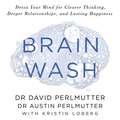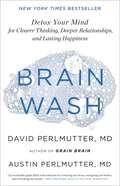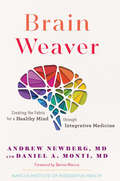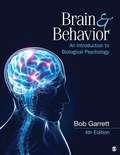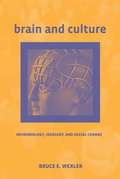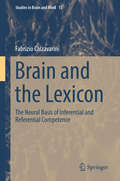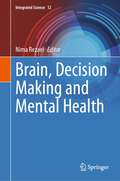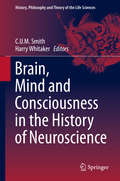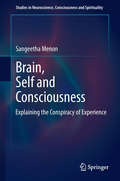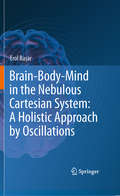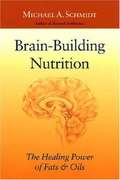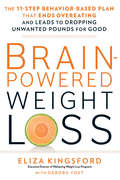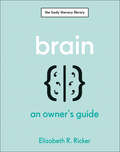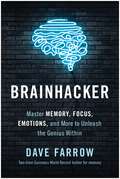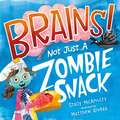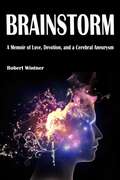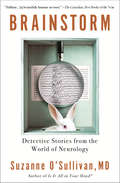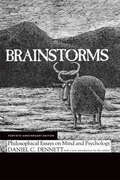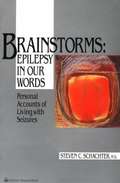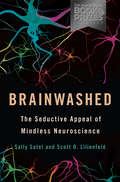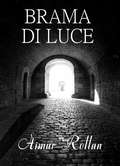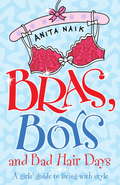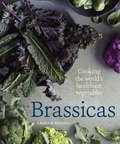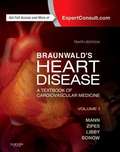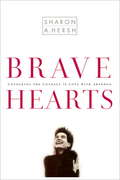- Table View
- List View
Brain Wash: Detox Your Mind for Clearer Thinking, Deeper Relationships and Lasting Happiness
by David PerlmutterThe #1 New York Times bestselling author of Grain Brain and his physician son explore how modern culture threatens to rewire our brains and damage our health, offering a practical plan for healing. Contemporary life provides us with infinite opportunities, along with endless temptations. We can eat whatever we want, whenever we want. We can immerse ourselves in the vast, enticing world of digital media. We can buy goods and services with the touch of a button or the swipe of a finger. But living in this 24/7 hyper-reality poses serious risks to our physical and mental states, our connections to others and even to the world at large. Brain Wash builds from a simple premise: Our brains are being gravely manipulated, resulting in behaviours that leave us more lonely, anxious, depressed, distrustful, illness-prone and overweight than ever before. Based on the latest science, the book identifies the mental hijacking that undermines each and every one of us and presents the tools necessary to think more clearly, make better decisions, strengthen bonds with others and develop healthier habits. Featuring a 10-day boot camp program, including a meal plan and 40 delicious recipes, Brain Wash is the key to cultivating a more purposeful and fulfilling life.(P) 2020 Hachette Audio
Brain Wash: Detox Your Mind for Clearer Thinking, Deeper Relationships, and Lasting Happiness
by David Perlmutter Austin PerlmutterFight back against a modern culture that is rewiring our brains and damaging our health with this practical, doctor-approved plan for healing that includes a ten-day boot camp and forty delicious recipes.Contemporary life provides us with infinite opportunities, along with endless temptations. We can eat whatever we want, whenever we want. We can immerse ourselves in the vast, enticing world of digital media. We can buy goods and services for rapid delivery with our fingertips or voice commands. But living in this 24/7 hyper-reality poses serious risks to our physical and mental states, our connections to others, and even to the world at large. Brain Wash builds from a simple premise: Our brains are being gravely manipulated, resulting in behaviors that leave us more lonely, anxious, depressed, distrustful, illness-prone, and overweight than ever before.Based on the latest science, the book identifies the mental hijacking that undermines each and every one of us, and presents the tools necessary to think more clearly, make better decisions, strengthen bonds with others, and develop healthier habits. Featuring a 10-day bootcamp program, including a meal plan and 40 delicious original recipes, Brain Wash is the key to cultivating a more purposeful and fulfilling life.
Brain Weaver (Vol. 1): Creating The Fabric For A Healthy Mind Through Integrative Medicine
by Andrew Newberg Daniel A. Monti M.D.Though adult cognitive development has previously been thought to be unyielding and static, Brain Weaver offers new hope and empowerment to remain mentally vibrant for a lifetime. Doctors Newberg and Monti’s team at Thomas Jefferson University’s Marcus Institute of Integrative Health are at the forefront of research in brain functioning and applications of the most advanced understanding in real-world strategies to expand options for optimizing our complex neurophysiology. Their findings show that optimal brain health is achievable by successfully weaving together a tapestry of our bio-psycho-social-spiritual dimensions. Brain Weaver also coincides with a decades-long surge in the public’s interest in whole-person treatments—body, mind and spirit evidence-based integrative therapies that include pharmaceuticals, electromagnetics, nutrition and meditation. Brain Weaver’s timeliness is all the more important now to address a new paradigm for post-pandemic wellness that emphasizes our individual and collective responsibility for proactive healthcare
Brain and Behavior: An Introduction to Biological Psychology (Fourth Edition)
by Bob L. GarrettThe Fourth Edition of Brain & Behavior: An Introduction to Biological Psychology by Bob Garrett showcases our rapidly increasing understanding of the biological foundations of behavior, engaging students immediately with easily accessible content. Bob Garrett uses colorful illustrations and thought-provoking facts while maintaining a "big-picture" approach that students will appreciate. Don't be surprised when they reach their "eureka" moment and exclaim, "Now I understand what was going on with Uncle Edgar!" " [T]he topic coverage is excellent. It is what a student taking an Introductory Biological Psychology course should walk away with. " --William Meil, Indiana University of Pennsylvania "I absolutely love this book. I think it is head and shoulders above any other. . . . The book is just right. I have used every edition so far and students seem to read it and grasp the concepts well. It is clearly written, well illustrated, and explains concepts in an engaging and understandable way. The text reads like it should--a wonderfully written book. It almost reads like a novel, progressing through the topics with a fluency that is rare. It's perfect for my students. " --Carol L. DeVolder, St. Ambrose University "The text is well organized and has excellent artwork depicting complex brain functions. " --Dr. Catherine Powers Ozyurt, Bay Path College "Excellent use of artwork, good coverage of a range of topics within each chapter. " --M. Foster Olive, Arizona State University
Brain and Culture: Neurobiology, Ideology, and Social Change
by Bruce E. WexlerChoice Outstanding Academic Title, 2007. Research shows that between birth and early adulthood the brain requires sensory stimulation to develop physically. The nature of the stimulation shapes the connections among neurons that create the neuronal networks necessary for thought and behavior. By changing the cultural environment, each generation shapes the brains of the next. By early adulthood, the neuroplasticity of the brain is greatly reduced, and this leads to a fundamental shift in the relationship between the individual and the environment: during the first part of life, the brain and mind shape themselves to the major recurring features of their environment; by early adulthood, the individual attempts to make the environment conform to the established internal structures of the brain and mind. In Brain and Culture, Bruce Wexler explores the social implications of the close and changing neurobiological relationship between the individual and the environment, with particular attention to the difficulties individuals face in adulthood when the environment changes beyond their ability to maintain the fit between existing internal structure and external reality. These difficulties are evident in bereavement, the meeting of different cultures, the experience of immigrants (in which children of immigrant families are more successful than their parents at the necessary internal transformations), and the phenomenon of interethnic violence. Integrating recent neurobiological research with major experimental findings in cognitive and developmental psychology--with illuminating references to psychoanalysis, literature, anthropology, history, and politics--Wexler presents a wealth of detail to support his arguments. The groundbreaking connections he makes allow for reconceptualization of the effect of cultural change on the brain and provide a new biological base from which to consider such social issues as "culture wars" and ethnic violence.
Brain and the Lexicon: The Neural Basis of Inferential and Referential Competence (Studies in Brain and Mind #15)
by Fabrizio CalzavariniThis monograph offers a novel, neurocognitive theory concerning words and language. It explores the distinction between inferential and referential semantic competence. The former accounts for the relationship of words among themselves, the latter for the relationship of words to the world. The author discusses this distinction at the level of the human brain on both theoretical and neuroscientific grounds. In addition, this investigation considers the relation between the inf/ref neurocognitive theory and other accounts of semantic cognition proposed in the field of neurosemantics, as well as some potential implications of the theory for clinical neuroscience and the philosophy of semantics. Overall, the book offers an important contribution to the debate about lexical semantic competence. It combines a strong philosophical and linguistic background with a comprehensive and critical analysis of neurosemantic literature. Topics discussed lie at the intersection of philosophical semantics, linguistics, neurolinguistics, cognitive science, artificial intelligence, cognitive neuroscience, and clinical psychology. Due to its interdisciplinary orientation, coverage is rich in introductory remarks and not overly technical, therefore it is accessible to non-experts as well.
Brain, Decision Making and Mental Health (Integrated Science #12)
by Nima RezaeiBrain, Decision Making, and Mental Health acknowledges that thinking is not a constant phenomenon but varies considerably across cultures. Critical thinking is particularly important in bridging thinking divisions and its applicability across sciences, particularly medical sciences. We see critical thinking as educable and the arts as means to achieve this purpose. We address the multidimensional relationship between thinking and health and related mechanisms. Thinking mainly affects emotion regulation and executive function; in other words, both mental and physical health are related as a function of thoughts. Considering the thinking‐feeling‐emotion regulation/executive function pathway, it would be reasonable to propose thinking capacities‐based interventions to impact emotion regulation and executive function, such as mindfulness and psychotherapy. We review decision-making taking place in integrated and social contexts and discuss the decision-making styles-decision outcomes relation. Finally, artificial thinking and intelligence prepare us for decision-making outside the human mind.
Brain, Mind and Consciousness in the History of Neuroscience (History, Philosophy and Theory of the Life Sciences #6)
by C. U. M. Smith Harry WhitakerThis volume of essays examines the problem of mind, looking at how the problem has appeared to neuroscientists (in the widest sense) from classical antiquity through to contemporary times. Beginning with a look at ventricular neuropsychology in antiquity, this book goes on to look at Spinozan ideas on the links between mind and body, Thomas Willis and the foundation of Neurology, Hooke's mechanical model of the mind and Joseph Priestley's approach to the mind-body problem. The volume offers a chapter on the 19th century Ottoman perspective on western thinking. Further chapters trace the work of nineteenth century scholars including George Henry Lewes, Herbert Spencer and Emil du Bois-Reymond. The book covers significant work from the twentieth century, including an examination of Alfred North Whitehead and the history of consciousness, and particular attention is given to the development of quantum consciousness. Chapters on slavery and the self and the development of an understanding of Dualism bring this examination up to date on the latest 21st century work in the field. At the heart of this book is the matter of how we define the problem of consciousness itself: has there been any progress in our understanding of the working of mind and brain? This work at the interface between science and the humanities will appeal to experts from across many fields who wish to develop their understanding of the problem of consciousness, including scholars of Neuroscience, Behavioural Science and the History of Science.
Brain, Self and Consciousness: Explaining the Conspiracy of Experience (Studies in Neuroscience, Consciousness and Spirituality #3)
by Sangeetha MenonThis book discusses consciousness from the perspectives of neuroscience, neuropsychiatry and philosophy. It develops a novel approach in consciousness studies by charting the pathways in which the brain challenges the self and the self challenges the brain. The author argues that the central issue in brain studies is to explain the unity, continuity, and adherence of experience, whether it is sensory or mental awareness, phenomenal- or self-consciousness. To address such a unity is to understand mutual challenges that the brain and the self pose for each other. The fascinating discussions that this book presents are: How do the brain and self create the conspiracy of experience where the physicality of the brain is lost in the subjectivity of the self?
Brain-Body-Mind in the Nebulous Cartesian System: A Holistic Approach By Oscillations
by Erol BaşarBrain-Body-Mind in the Nebulous Cartesian System: A Holistic Approach by Oscillations is a research monograph, with didactical features, on the mechanisms of the mind, encompassing a wide spectrum of results and analyses. The book should appeal to scientists and graduate students in the fields of neuroscience, neurology, psychiatry, physiology, psychology, physics and philosophy. Its goals are the development of an empirical-analytical construct, denoted as “Reasonings to Approach the Mind”, and the comprehension of 20 principles for understanding the mind. This book amalgamates results from work on the brain, vegetative system, brains in the evolution of species, the maturing brain, dynamic memory, emotional processes, and cognitive impairment in neuro-psychiatric disorders (Alzheimer, Schizophrenia, Bipolar disorders). The findings are comparatively evaluated within the framework of brain oscillations and neurotransmitters. Further, a holistic approach links the brain to the cardiovascular system and overall myogenic coordination of the vegetative system. The results emphasize that EEG oscillations, ultraslow oscillations, and neurotransmitters are quasi-invariant building blocks in brain-body-mind function and also during the evolution of species: The temporal domain is where the importance of research on neural oscillators is indispensable. The core, holistic concept that emerges is that the brain, spinal cord, overall myogenic system, brain-body-oscillations, and neurotransmitters form a functional syncytium. Accordingly, the concept of “Syncytium Brain-Body-Mind” replaces the concept of “Mind”. P>
Brain-Building Nutrition: How Dietary Fats and Oils Affect Mental, Physical, and Emotional Intelligence
by Michael SchmidtThis provides a host of practical dietary information and new, groundbreaking research to support the author's findings. A remarkable but little known fact is that the brain is nearly 60 percent fat.
Brain-Powered Weight Loss: The 11-Step Behavior-Based Plan That Ends Overeating and Leads to Dropping Unwan ted Pounds for Good
by Eliza KingsfordLosing weight and successfully maintaining it over the long term is not as much about what you put in your stomach; it’s more about what’s happening in the brain. In Brain-Powered Weight Loss, psychotherapist and weight management expert Eliza Kingsford shows that more than 90 percent of people who go on diet programs (even healthy ones) fail or eventually regain because they have a dysfunctional relationship with food. Changing this relationship by changing the way you think about and behave around food is what it takes to permanently achieve weight-loss success. Kingsford’s 11-step first-of-its-kind program enlists dozens of mind-altering and behavior-changing exercises and techniques and shows you how to:• Identify and reverse the conscious and unconscious thinking errors and food triggers that lead to the behaviors that drive our food decisions.• Let go of the mindset of going on or off a diet in favor of a conscious quest to pursue a lifestyle of healthy eating and everyday activity—one that can last forever. • Successfully use what Kingsford calls “dealing skills” to outsmart high-risk situations, tame stressful times, and prevent an eating “slip” from leading to a setback or all-out binge.• Find out if you have what emerging research shows is an addiction to certain high-fat and sugar-added, processed foods that can be as powerful as addiction to cigarettes and narcotics.• Design a personal healthy eating program built on Kingsford’s 10 Principles of Healthy Eating.
Brain: An Owner's Guide (The Body Literacy Library)
by Elizabeth R. RickerBecome body literate with Brain: An Owner's Guide, the next book in The Body Literacy Library, an enlightening series that democratizes health for a new generation of readers.Brain: An Owner’s Guide is an informative and practical guide to all aspects of brain health, from maximizing your mental well-being today to protecting your brain against future serious health issues. Leading neuroscientist Eli Ricker explains how the brain works, discusses how you can take care of and protect your brain, and explains what you can do to improve your memory and concentration at any age. Ricker also looks at what constitutes mental "well-being" and the science behind a positive mindset, resilience, concentration, and memory, as well as low mood, depression, and brain fog. Dementia and other brain disorders are a huge concern for many, and Ricker looks at how these occur, the latest medical research, and what you can do to protect your brain for life.Author Elizabeth Ricker is an engaging and media-friendly neuroscientist who specializes in brain health research, with a particular emphasis on brain "hacking," memory, and concentration. She translates medical jargon into simple, clear prose, answering frequently asked patient queries, such as "How can I improve my concentration?," "Do brain games work?," "Is dementia hereditary?," "What is good brain food?," "Why do I have brain fog?," and much more.From the importance of sleep and stress management to why dementia is a feminist issue, this hardworking book applies science to the everyday, with simple illustrations, checklists, FAQs, and myth busters, all supported by the latest medical research. Brain: An Owner’s Guide can help you better understand your mind and aims to enhance your long-term quality of life.
Brainhacker: Master Memory, Focus, Emotions, and More to Unleash the Genius Within
by Dave FarrowIf you feel like your brain is &“glitching,&” or working against you, know that you&’re not stuck with the brain biology gave you. An upgrade is possible. In Brainhacker, you&’ll learn how to &“rewire&” your brain and boost its power. David Farrow, author of The Farrow Method, helps you get inside your own head and call the shots, with concrete exercises and tips to train your brain to work for you. These tricks can instantly boost your memory, improve your reading speed, help you push away pain, and form life-changing habits that actually last—with techniques as simple as a hand movement or a little bit of imagination. Farrow speaks from personal experience. His unlikely journey from underachieving kid with ADHD and dyslexia to winner of multiple Guinness World Records for memorization is proof that training your brain really works—and can unlock hidden potential. Brainhacker pairs Farrow&’s unique, tried-and-true methods with his own story, following his path to success as he searched for solutions to overcome his struggles with focus, memory, sleep, anxiety, self-esteem, and more. On average, we waste 40 days of the year compensating for our bad memory. Many of us suffer from insomnia, stress, and chronic pain. The COVID-19 pandemic has caused a huge surge in the already-huge number of people suffering from burnout and mental health problems. But all of this, from memory to ADHD symptoms to sleep problems, can be transformed with the simple hacks you&’ll find in these pages. If you&’re ready to tap into the full power of your brain, Brainhacker is your all-in-one guide to hacking into your brain—and making it as powerful as it can be.
Brains! Not Just a Zombie Snack
by Stacy McAnultyFrom Stacy McAnulty, author of the funny STEM picture book Earth! My First 4.54 Billion Years and Our Universe series, comes the beginning of an exciting new picture book series focused on the science of the body. Brains. 78% water, 100% delicious. A zombie chef who has sworn off eating brains salivates over this super powerful organ in this funny and fact-filled picture book. From learning about how the brain processes messages from our five senses, to learning why wrinkly human brains are so much more powerful than smooth mouse brains, this is a hilarious introduction to the organ that does it all. Rich with kid-friendly facts and beautifully brought to life by Matthew Rivera, this is a charming and irresistible picture book.
Brainstorm: A Memoir of Love, Devotion, and a Cerebral Aneurysm
by Robert WintnerNine million Americans are touched by aneurysms during their lifetime. This is one story of love.Brainstorm is the candid and powerful memoir of the author’s harrowing experience of an aneurysm and his road to recovery. It is a journey of love, devotion, and a clash of medical beliefs and countercultures. The fierce resolve of the author and his wife is extraordinary, inspiring, and matched only by the tremendous competence and care of the medical system—one to which the author initially stands in opposition, but that he later learns to admire and respect.This book is for anyone who has experienced the fear and difficulties of a major illness. The themes, truths, and above all, the compassion that this book shares will be familiar not just to the nine million Americans affected by aneurysms, but to anyone whose family has been touched by a medical trauma. Filled with raw emotion, Brainstorm affords quiet but powerful support to those suffering similar circumstances and strives to tell them that they are not alone.
Brainstorm: Detective Stories from the World of Neurology
by Suzanne O'SullivanA leading neurologist recounts some of her most astonishing, challenging cases, which demonstrate how crucial the study of epilepsy has been to our understanding of the brain.Brainstorm follows the stories of people whose medical diagnoses are so strange even their doctor struggles to know how to solve them. A man who sees cartoon characters running across the room; a girl whose world suddenly seems completely distorted, as though she were Alice in Wonderland; another who transforms into a ragdoll whenever she even thinks about moving.The brain is the most complex structure in the universe. Neurologists must puzzle out life-changing diagnoses from the tiniest of clues, the ultimate medical detective work. In this riveting book, Suzanne O'Sullivan takes you with her as she tracks the clues of her patients' symptoms. It's a journey that will open your eyes to the unfathomable intricacies of our brains and the infinite variety of human experience.
Brainstorms, Fortieth Anniversary Edition: Philosophical Essays on Mind and Psychology (The\mit Press Ser.)
by Daniel C. DennettAn anniversary edition of a classic in cognitive science, with a new introduction by the author.When Brainstorms was published in 1978, the interdisciplinary field of cognitive science was just emerging. Daniel Dennett was a young scholar who wanted to get philosophers out of their armchairs—and into conversations with psychologists, linguists, computer scientists. This collection of seventeen essays by Dennett offers a comprehensive theory of mind, encompassing traditional issues of consciousness and free will. Using careful arguments and ingenious thought experiments, the author exposes familiar preconceptions and hobbling intuitions. The essays are grouped into four sections: “Intentional Explanation and Attributions of Mentality”; “The Nature of Theory in Psychology”; “Objects of Consciousness and the Nature of Experience”; and “Free Will and Personhood.”This anniversary edition includes a new introduction by Dennett, “Reflections on Brainstorms after Forty Years,” in which he recalls the book's original publication by Harry and Betty Stanton of Bradford Books and considers the influence and afterlife of some of the essays. For example, “Mechanism and Responsibility” was Dennett's first articulation of his concept of the intentional stance; “Are Dreams Experiences?” anticipates the major ideas in his 1991 book Consciousness Explained; and “Where Am I?” has been variously represented in a BBC documentary, a student's Javanese shadow puppet play, and a feature-length film made in the Netherlands, Victim of the Brain.
Brainstorms: Personal Accounts of Living with Seizures
by Steven C. SchachterThis fascinating book presents accounts of seizures and epilepsy written by adult patients in their own words. These personal, heartfelt passages realistically detail the feelings experienced before, during, and after a wide variety of seizures, and offer valuable insights to lay persons and professionals alike. Dr. Schachter first provides an overview of epilepsy and different seizure types from a medical perspective, and then presents a diverse collection of seizure descriptions written by patients. The book concludes with statements by some of these patients about what life with epilepsy is like, including the fear of having a seizure, the social and occupational problems encountered, and the psychological impact of the stigma still prevalent in our culture.
Brainwashed: The Seductive Appeal of Mindless Neuroscience
by Scott O. Lilienfeld Sally SatelIn recent years, the advent of MRI technology seems to have unlocked the secrets of the human mind, revealing the sources of our deepest desires, intentions, and fears. As renowned psychiatrist and scholar Sally Satel and psychologist Scott O. Lilienfeld demonstrate in Brainwashed, however, the explanatory power of brain scans in particular and neuroscience more generally has been vastly overestimated. Although acknowledging its tremendous potential, the authors argue that the overzealous application of the burgeoning field of brain science has put innocent people in jail, prevented addicts from healing themselves, and undermined notions of free will and responsibility. A provocative challenge to the use and abuse of a seductive science, Brainwashed offers an essential corrective to determinist explanations of human behavior.
Brama di Luce
by Valeria Bragante Aimar RollanPer i Sufiti non c’è castigo peggiore che provare nostalgia, sapendo di essere separati dalla fonte, né maggiore ricompensa che sentirsi uniti ad essa. Così, l’emozione che predomina in quest’opera è la nostalgia, ed il conseguente desiderio di liberarsi da essa e fondersi con l’Unità. Questa è la storia di una caduta, di una perdita, di un recupero e di una ascensione. È la storia di una ricerca della luce dall’oscurità più profonda. È scritta in prosa poetica, con breve frammenti indipendenti tra loro, che si possono leggere in modo isolato ma che mantengono una certa coesione, dato che ogni frammento porta con sé, o brama, un po’più di luce del precedente. Parla di un uomo che ha perduto la propria luce, ma che conserva dentro di sé un lieve scintillio del ricordo di essa. Questa fugacità tortura la sua mente e gli fa intraprendere un cammino di ascensione per recuperare un tesoro tanto prezioso. Passa attraverso tutte le fasi di depressione, tristezza e malinconia, crogiolandosi nella propria perdita. Nelle fasi iniziali identifica questa luce perduta con l’amore di una donna, con l’amore di molte donne che per lui sono una, e l’origine della sua malinconia è la perdita di questo amore. Man mano che il suo tormento avanza, riconosce che questa luce desiderata appartiene a qualcosa di più sottile e profondo, al regno della sua anima … Riconosce che questo dolore emozionale proviene dal sentirsi separato dalla fonte primordiale. Questa opera è scritta con un linguaggio malinconico, ma sullo sfondo vuole trasmettere bellezza, speranza ed allegria.
Bras, Boys and Bad Hair Days
by Anita NaikFor every girl that wants to know how to apply make-up, how to ask a guy out, how to survive school and of course, how to buy a bra that fits... this book is an oracle of knowledge that no teenage girl should be without!With advice on boys, friends, parents, school and fashion, Bras, Boys and Bad Hair Days reveals all in one stylish, ultimate handbook.
Brassicas
by Rebecca Katz Laura B. RussellABOUT THIS BOOK...A cookbook showcasing 80 recipes for the most popular of the world's healthiest vegetables--kale, cauliflower, broccoli, brussels sprouts, cabbage, leafy greens, and more--tailored to accommodate special diets such as gluten-free, dairy-free, vegetarian, and vegan.The eighty inventive, flavorful recipes presented in Brassicas play to each vegetable's strengths, favoring techniques that celebrate their intrinsic flavors instead of masking them by blanketing under layers of cheese or boiling. Think of the inherent sweetness that can be coaxed from perfectly roasted Brussels sprouts, or the bright, peppery punch of a watercress and arugula salad.Straightforward cooking methods like roasting, sautéing, pickling, and wilting transform brassicas into satisfying dishes, such as Cauliflower Hummus, Spicy Kale Fried Rice, Roasted Brussels Sprouts with Parmesan Crust, and Broccoli and Pepper Jack Frittata. These recipes also maintain the vegetables' stellar nutritional properties. High in vitamins and minerals, fiber, phytochemicals, and glucosinolates, brassicas have been shown to act as antioxidants, anticarcinogenics, anti-inflammatories, and liver detoxifiers, and have many other health benefits.The beauty of these "superfoods" is on full display in Brassicas; exquisite photographs of brassica varieties in their raw forms--roots, stems, leaves, flowers, and buds--can be found throughout, helping you identify Lacinato kale from curly kale or mustard greens from collard greens at the farmers' market or grocery store.For those who observe certain dietary restrictions, author Laura B. Russell provides alternatives and tips to accommodate gluten-free, soy-free, vegetarian, and vegan diets. Equipped with complete selection, storage, washing, and prepping instructions, you can enjoy more of these nutritional powerhouses--from the commonplace kale to the more adventurous bok choy or mizuna--in your everyday meals.
Braunwald's Heart Disease: A Textbook of Cardiovascular Medicine (Volume #1)
by Douglas L. Mann Douglas P. Zipes Peter Libby Robert O. Bonow Eugene BraunwaldVolume 1 of the two-part textbook.
Brave Hearts: Unlocking the Courage to Love with Abandon
by Sharon A. HershWithin every woman is the desire for extraordinary relationships. We crave intimacy and interconnectedness, companionship and camaraderie. Yet most of us eventually begin to wonder if we want too much. As heartbreak and disappointment take their toll, we become convinced that our desire for deep connection is our downfall. And still we long for more. What is behind this yearning? Is it healthy? Is it normal? Does it have a purpose? Yes, says author and licensed professional counselor Sharon Hersh-and in Bravehearts, she'll teach how your deepest longings can lead you to rich relationships and give you the courage to love with abandon.
